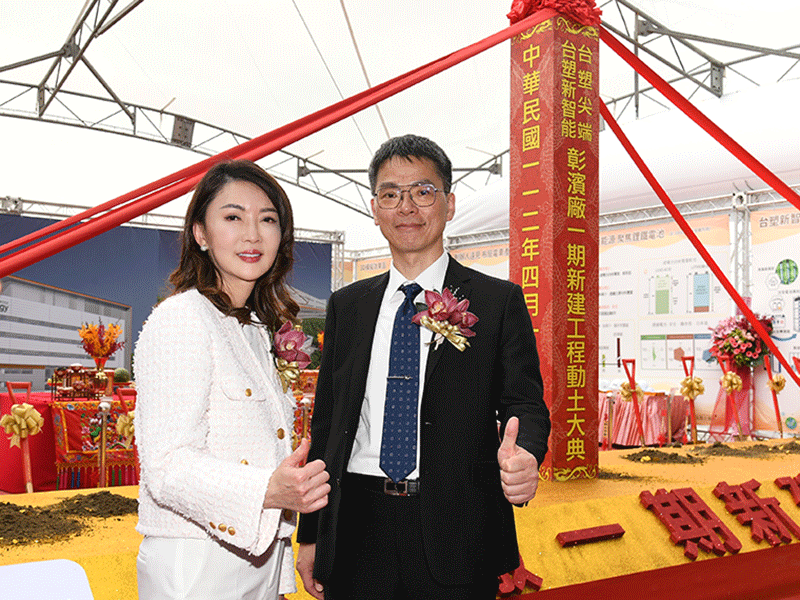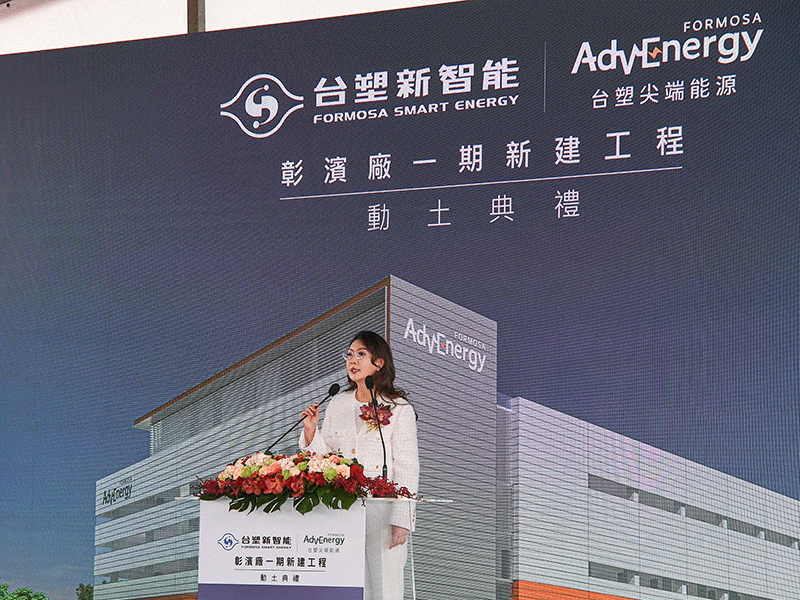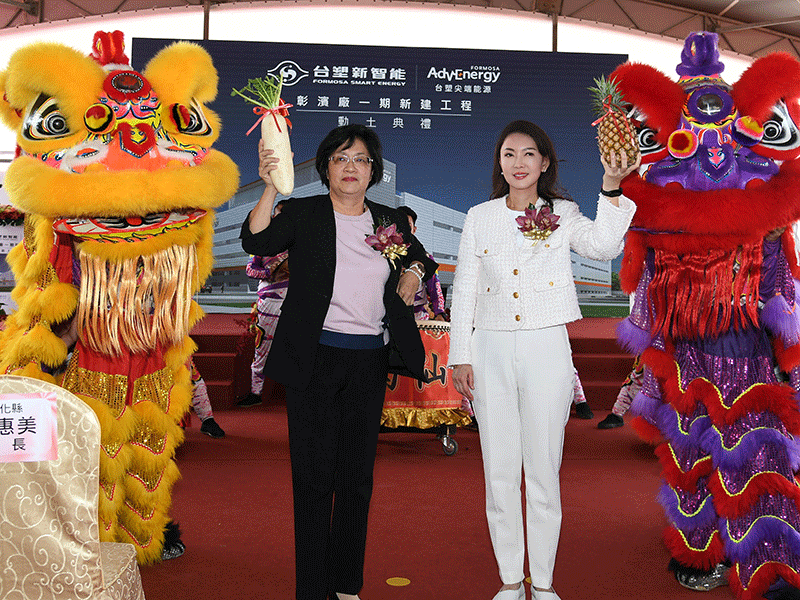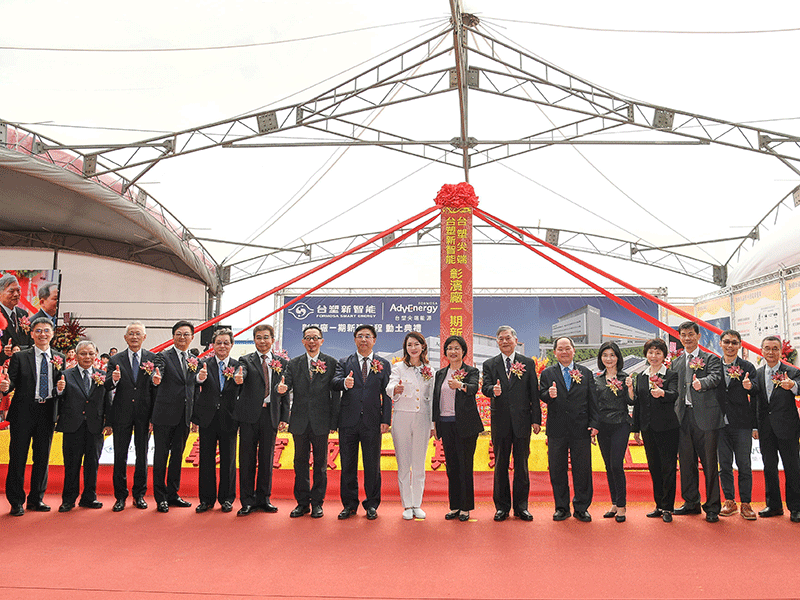Formosa Smart Energy Announces Groundbreaking of Largest Cell Plant in Taiwan,NT$16 Billion Investment to Create Domestic Battery Industry Chain
2023 / 04 / 12
Formosa Smart Energy Tech Corp. announced an investment of over NT$16 billion through its subsidiary "Formosa AdvEnergy" for the construction of the largest lithium iron phosphate battery cell plant in Taiwan with an annual output of 5GWh in Changhua Coastal Industrial Park. It held the groundbreaking ceremony for phase 1 that will have a capacity of 2.1GWh on April 12. It is scheduled to be completed by Q3 2024 to provide safe and stable lithium iron phosphate cells for a diverse range of applications such as electric vehicles and energy storage systems. It will create a comprehensive domestic battery industry chain and start a new era in Taiwan's energy industry.
Formosa Smart Energy Tech Corp. Chairperson Sandy Wang stated that in order to help Taiwan develop new energy and transition to carbon neutrality, the company announced the establishment of Formosa Smart Energy Tech Corp. in July last year with steadfast resolve and set four major goals including energy conservation, energy storage, new energy, and recycling and reuse. In less than one year, the company has made significant progress for each goal. It has expanded the replacement of leadacid batteries with energy-saving lithium iron phosphate batteries, and the total capacity of energy storage sites in Taiwan will reach 150MW by the end of this year. It has accelerated collaboration with green energy companies, invested in new energy research such as solidstate batteries, and began drafting plans for reusing decommissioned and repurposed batteries to support circular economy and environmental sustainability.
Sandy Wang stated that cells are the key component of the battery and its importance is similar to that of the naphtha cracking process in the petrochemical industry. The groundbreaking of the cell plant in Changhua Coastal Industrial Park is a significant milestone for Formosa Smart Energy Tech Corp. It also represents the longawaited integration of the upstream, midstream and downstream battery industry chain in Taiwan with a high efficiency business model of vertical integration. Most importantly, the battery industry can rely completely on domestic production and local supply, which allow us to build a selfsufficient low carbon energy system and ensure Taiwan's information, economic, and national security.
Hui-chi Liu, President of Formosa Smart Energy Tech Corp. stated that the company will invest NT$16 billion to build a 5GWh lithium iron phosphate battery cell production line. A 2.1GWh battery cell factory will be built in phase 1 and it will be the largest such factory in Taiwan. After the completion of construction and commencement of mass production in the third quarter of 2024, the company will commence in the phase 2 expansion project to in-crease the output of the cell and module to 5GWh.
Hui-chi Liu stated that in response to the rapid growth of the electric vehicle and energy storage markets, the total global demand for batteries will reach 3,300GWh by 2030. Battery cells are critical and necessary resources but Taiwan currently rely on imports. Formosa Smart Energy Tech Corp. will integrate resources of the Formosa Plastics Group and manage cell materials to provide high-quality, safe, and stable sources of lithium iron phosphate battery cells, which can be used in electric buses, electric commercial vehicles, energy storage containers, home energy storage, and uninterruptible power supply systems to strengthen Taiwan's green economy and expand overseas markets.
Domestic production of battery cells will support the stable expansion of Taiwan's battery industry. Formosa Smart Energy Tech Corp. upholds the spirit of energy conservation and carbon reduction and will remain committed to the development of new energy. It will support Taiwan's transition to low carbon technologies, accelerate the transition to carbon neutrality, and make the Earth's environment cleaner and better for humans.




(FSET, Apr 12,2023)





